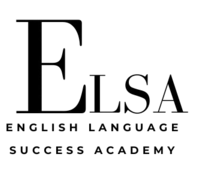The Test of English for International Communication (TOEIC) is a standardized test designed to assess non-native speakers’ proficiency in English, particularly in business contexts. While the exam evaluates a range of skills, two of the most critical areas are vocabulary and grammar. A strong grasp of business-related vocabulary and key grammar concepts is essential for a high score on the TOEIC. In this article, we’ll explore the vocabulary and grammar points that frequently appear on the test and provide strategies for learning and retaining them effectively.
TOEIC Vocabulary Focus
1. Common Business Terms
Since the TOEIC is focused on professional communication, the vocabulary tested on the exam often revolves around workplace scenarios. Many of the reading and listening passages are based on business-related topics such as meetings, emails, negotiations, and presentations. Some examples of common business vocabulary include:
- Revenue (income generated by a company)
- Agenda (a list of topics to be discussed in a meeting)
- Negotiate (to discuss terms in order to reach an agreement)
- Delegate (to assign tasks to others)
- Inventory (a detailed list of items in stock)
Familiarizing yourself with these types of terms is crucial for understanding the content of both the Reading and Listening sections of the exam.
2. Idioms and Phrases
Idiomatic expressions are common in business communication and often appear on the TOEIC. These idioms may not always be literal and can sometimes confuse test-takers. Some frequently tested idioms and phrases include:
- “In the red” – Operating at a loss or in debt
- “Go the extra mile” – To make an extra effort
- “Touch base” – To get in contact with someone, usually to discuss something
- “Cut corners” – To do something in a cheaper, easier, or quicker way, often compromising quality
- “Ahead of the curve” – Being more advanced or innovative than others
Understanding these phrases and their meanings will help you navigate listening sections and answer reading comprehension questions more effectively.
3. Collocations
Collocations—words that frequently appear together—are important for sounding natural in English and can also appear in the TOEIC’s Incomplete Sentences and Text Completion sections. Examples of business collocations include:
- “Make a decision” (not “do a decision”)
- “Hold a meeting” (not “conduct a meeting”)
- “Take responsibility” (not “have responsibility”)
Learning these common pairings is essential for improving your fluency and accuracy in professional communication.
TOEIC Grammar Focus
1. Tenses
Verb tenses are frequently tested in the TOEIC, especially in the Incomplete Sentences and Text Completion sections. Some of the most commonly tested tenses include:
- Present Simple: Used for general truths or habitual actions.
Example: “The company offers excellent customer service.” - Present Continuous: Used for ongoing actions happening at the moment.
Example: “We are working on a new marketing strategy.” - Past Simple: Used for actions that were completed in the past.
Example: “They launched the product last year.” - Future Forms: The TOEIC often tests various ways to express future actions, such as “will” and “going to.”
Example: “I will attend the meeting tomorrow.”
Understanding when and how to use these tenses is critical for correctly answering grammar-related questions.
2. Conditionals
Conditionals are another key grammar topic frequently tested in the TOEIC. Conditionals describe hypothetical situations and their consequences. There are four main types:
- Zero Conditional: Used for general truths.
Example: “If you heat water to 100°C, it boils.” - First Conditional: Used for real or possible situations in the future.
Example: “If it rains, we will cancel the meeting.” - Second Conditional: Used for unreal or unlikely situations in the present or future.
Example: “If I were the manager, I would improve the team’s workflow.” - Third Conditional: Used for past situations that didn’t happen.
Example: “If they had invested in technology, their profits would have increased.”
Being able to correctly form and identify these conditional sentences is a useful skill on the exam.
3. Passive Voice
The passive voice is often used in business writing and is regularly tested in the TOEIC. The passive voice shifts the focus from who performs the action to the action itself or its result.
- Active: “The manager approved the project.”
- Passive: “The project was approved by the manager.”
In the passive voice, the object of the action becomes the subject of the sentence. Understanding how to convert between active and passive forms will help you answer grammar questions correctly.
Methods for Learning and Retaining TOEIC Vocabulary
Building a strong business vocabulary and mastering the grammar points tested in the TOEIC requires consistent practice. Here are a few methods for effectively learning and retaining new vocabulary:
1. Use Flashcards
Flashcards are a powerful tool for learning vocabulary. Write the word on one side of the card and its definition or an example sentence on the other. Review your flashcards regularly to reinforce your memory. Apps like Anki or Quizlet allow you to create digital flashcards and practice on the go, using spaced repetition to help solidify your knowledge over time.
2. Practice with Vocabulary Apps
There are several apps designed specifically for TOEIC preparation that focus on improving vocabulary. Apps like Magoosh, Memrise, and TOEIC Vocabulary Trainer provide targeted practice and quizzes to help you learn business terms, idioms, and common phrases. These apps often track your progress and help you focus on areas where you need improvement.
3. Read Business Articles and Reports
One of the best ways to familiarize yourself with business English is by reading authentic materials. Regularly reading business magazines, newspapers, and reports will expose you to the type of language and vocabulary used in the TOEIC. Pay attention to common phrases, idioms, and collocations that appear frequently in business contexts.
4. Engage in Active Listening
Listening to podcasts, business news, and interviews in English can also help you internalize common business terms and idiomatic expressions. TED Talks, BBC Business News, and the Harvard Business Review’s IdeaCast podcast are great resources that cover a wide range of business-related topics in English.
Elsa Says:
To excel on the TOEIC, mastering business vocabulary and key grammar concepts is essential. Focus on learning common business terms, idiomatic expressions, and collocations, as these appear frequently on the test. In terms of grammar, pay special attention to tenses, conditionals, and passive voice. Use methods such as flashcards, vocabulary apps, and reading business articles to enhance your learning and retention of new vocabulary. By consistently practicing these strategies, you’ll be well-prepared to tackle the TOEIC’s vocabulary and grammar challenges with confidence.




